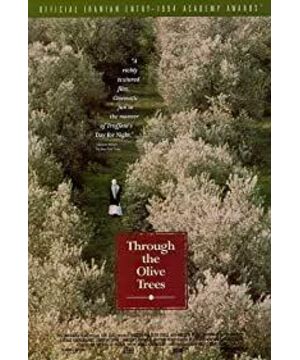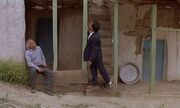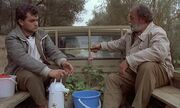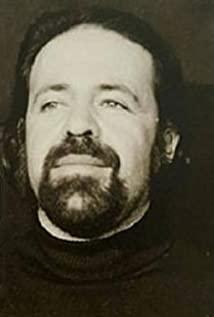The wind swayed through the woods. After the wind passed, the tree continued to grow.
The vitality is hidden in the wind, the woods, the land, the brick walls, and the daily life of people, day and night, and never stops.
Catch up on the Abbas feature during the festival, so I watched this Lover Under the Olive Tree in the cinema. I haven't seen the other two parts of the trilogy, and I don't know much about the director's work. Because of this, when I saw the title, I took it for granted that it was a love movie.
Love is a note that runs through the film. It's simple and beautiful, but you can't ignore its strangeness, especially after the earthquake, the village was in ruins, and before people were able to start over, love first sprouted between two young people.
The hero Hexi is a bricklayer in the village. He wants to give up his identity as a bricklayer for the girl he likes. Before the earthquake, the girl's mother always looked down on him. Later, he wanted to resume his job as a bricklayer, and for the girl he liked, Because of the loss of a family, the girl needs a place to live. Disasters have caused people's lives to face sudden interruptions and changes, but Jose has always pursued his beloved and never slowed down.
There is a scene in the filming scene of the film, which is a dialogue between the male protagonist and others, "If you get married the next day, there must be no casualties in the family." "I lost a total of 65 relatives." "If I listen to them again Wait, maybe a year later." "As long as we live, we must continue to live." This is the dialogue of the design and filming in the film. In this scene, Jose kept mispronouncing his lines and said the number was 25 people. He said that their family had indeed lost so many people. Maybe he mispronounced it on purpose to spend more time with the heroine, or maybe he can't tell the line between reality and film, because this sentence is exactly what he wanted and why he is so persistent.
In this film, there is a segment that is not limited to love that impressed me deeply. It happened in the dialogue between the director and the old cook in the crew. The old man lost his wife in the earthquake, and the director persuaded him to find another company and continue to live. The old man said: "I have lived with a person for 50 years, and remarriage is not suitable." It is also about a lover. Jose lives in the vision of the future, and the old man lives in nostalgia for the past. In this, the obsession with life has never stopped due to changes, just like a thin wisp of wind, passing through the gaps of leaves and waste bricks and rubble, endlessly, endlessly.
The more deeply you feel, the less you need to say. One morning, the director and the actors stood in the valley looking out across the deserted village, the director said, "If you greet the souls of the inhabitants there, they will hear." "But they will only answer you - hello. Goodbye." You Good is to face, goodbye is to turn around. Some people stay in this village, some people leave. No matter what you choose, the living will take the trajectory of yesterday and start the unknown of the next day, never forget "hello", and promise to meet "goodbye" next time. After the wind passed, the tree continued to grow.
At the end of the movie, many people admired the long chase scene. Click to stop, indeed, beautiful. Pure emotion itself has a beautiful, irrelevant form. When I saw the last shot on the screen, I was suddenly a little dizzy, as if the green color was about to overflow the screen with the music and the cheerful mood of the youth, flow into the darkness, spread over the seat and under the feet, and grow. The movie is fictional, but the people and days under the olive tree are real, I believe.
View more about Through the Olive Trees reviews








